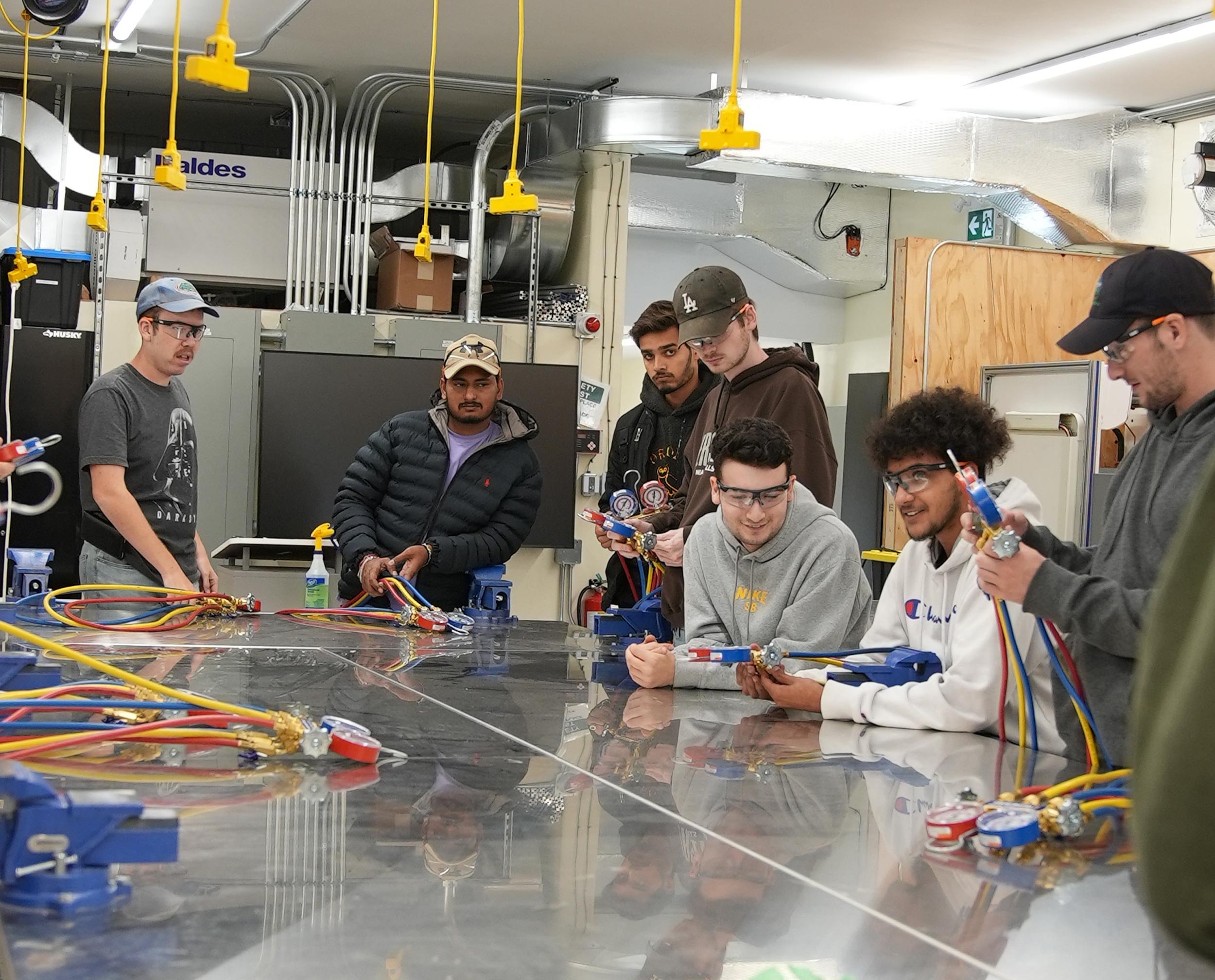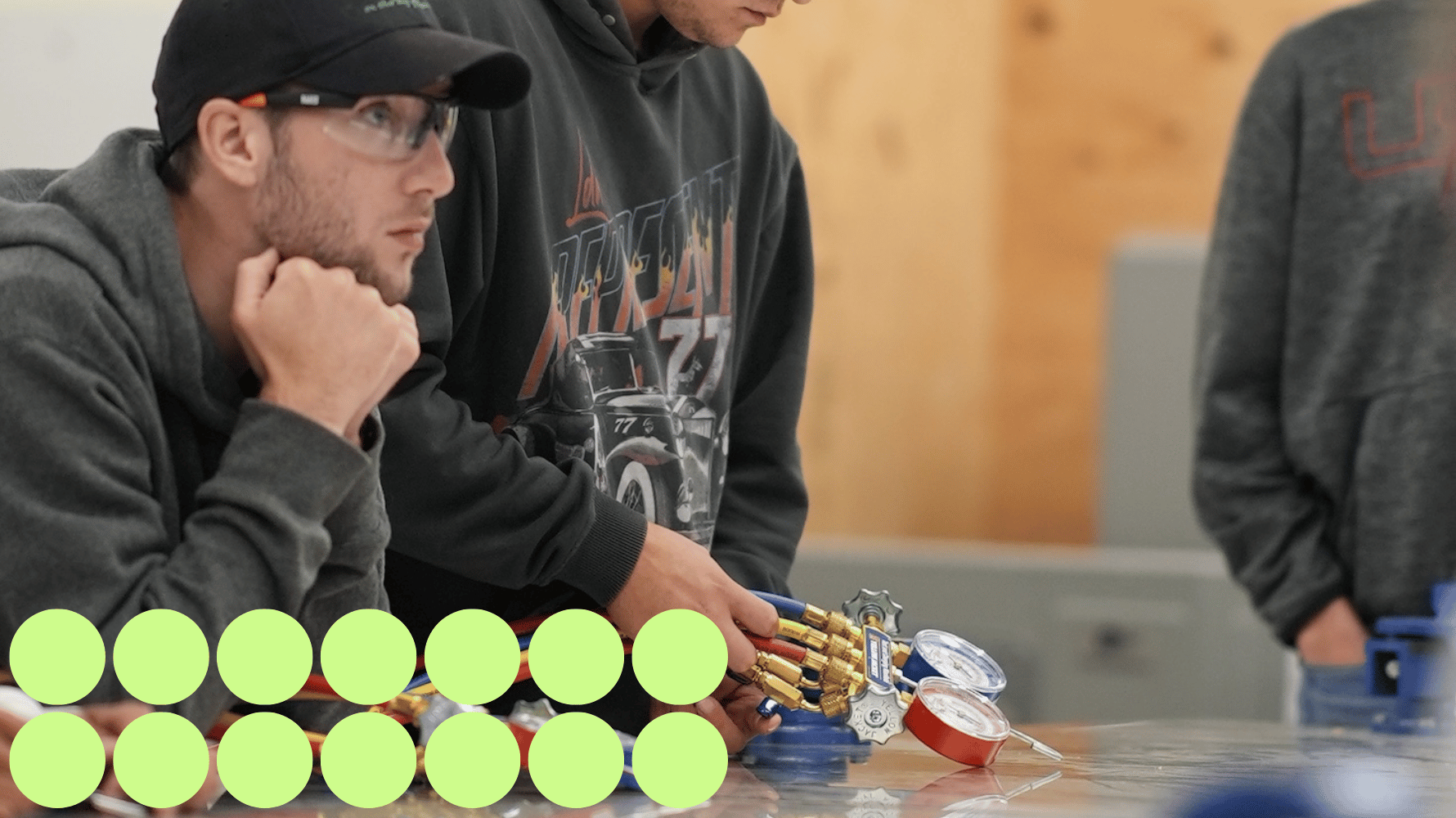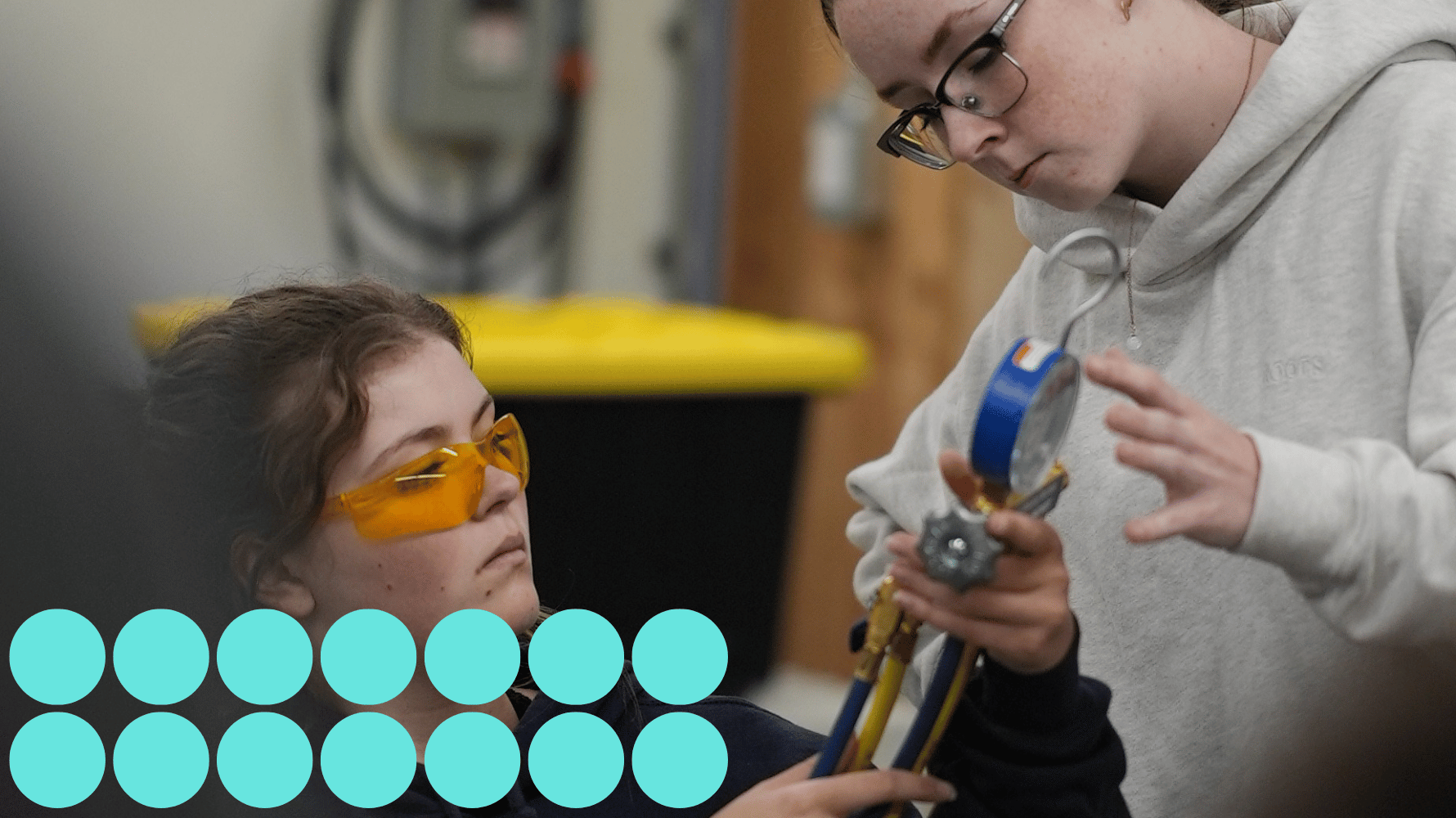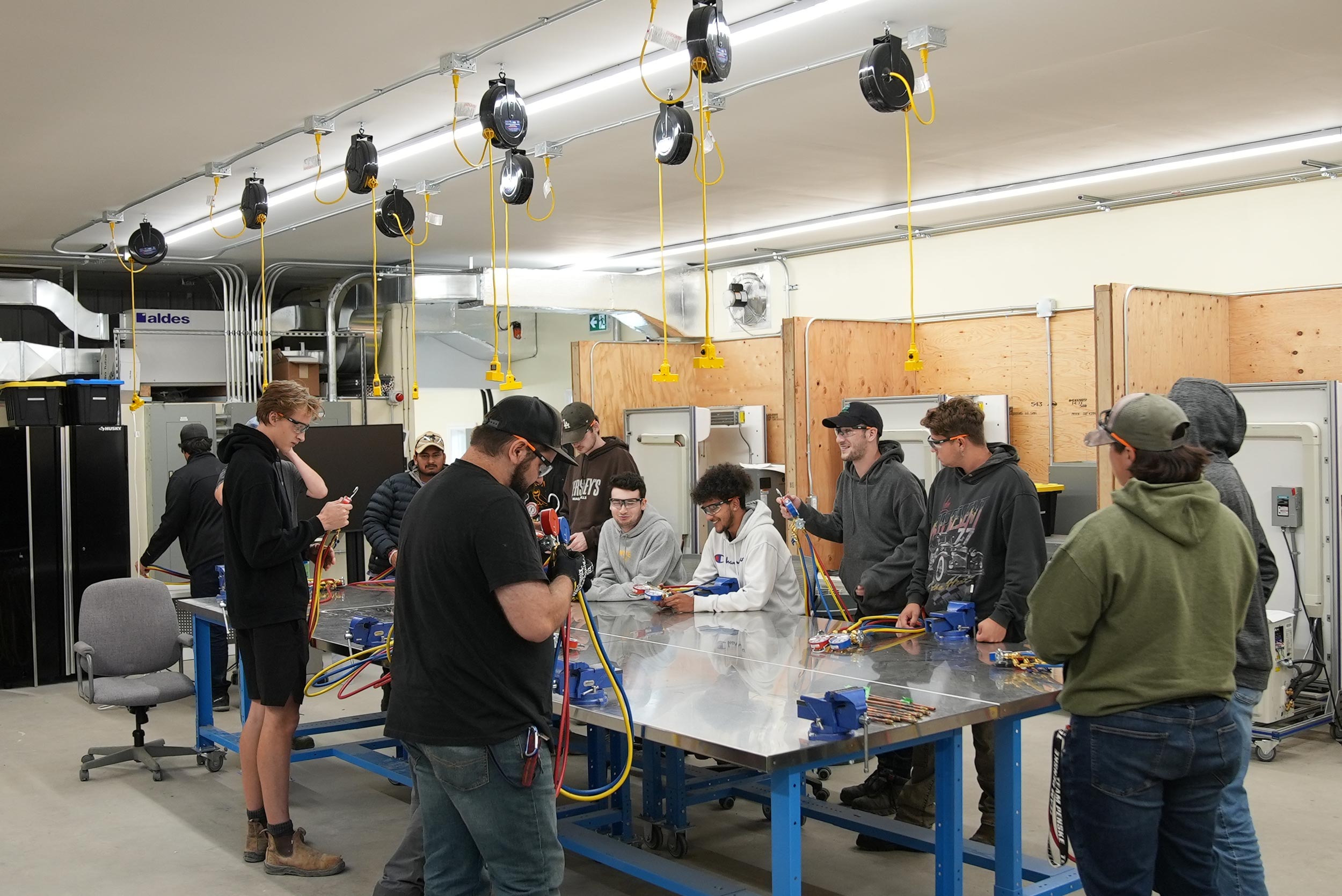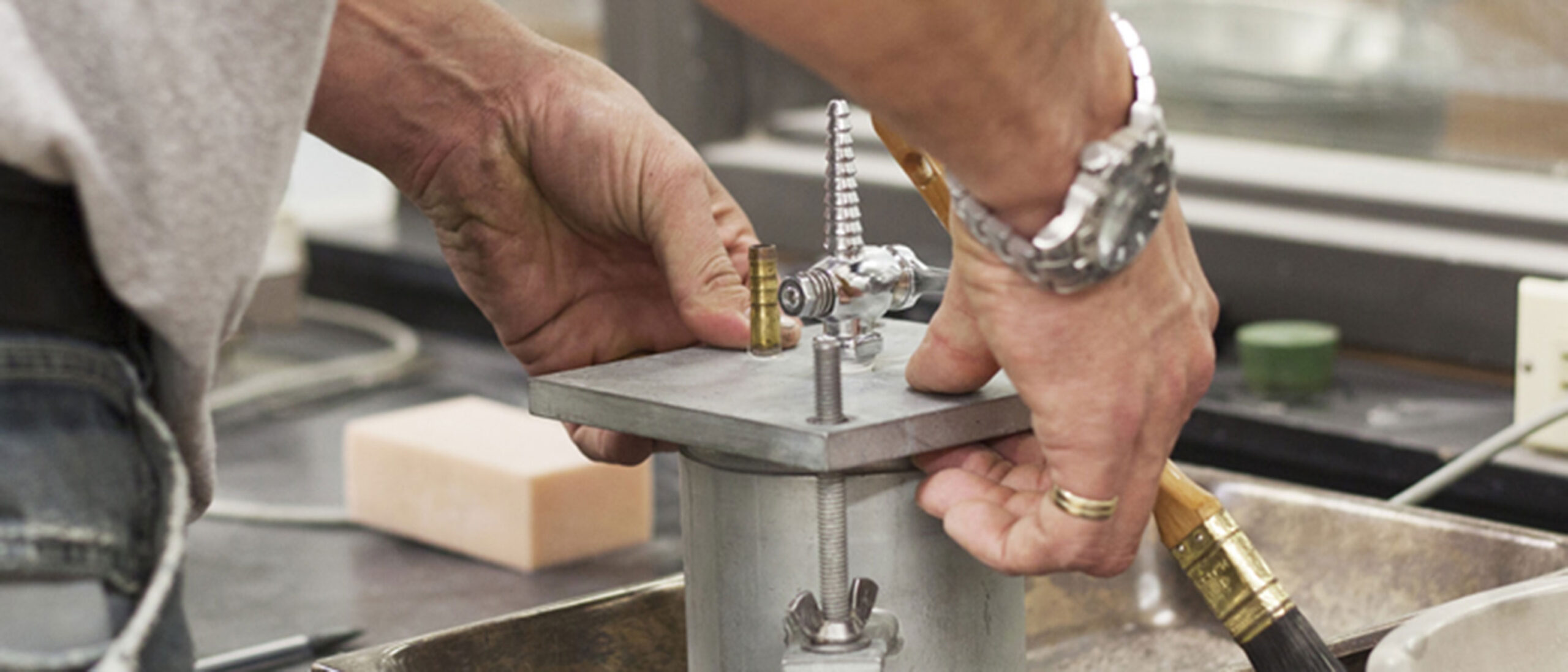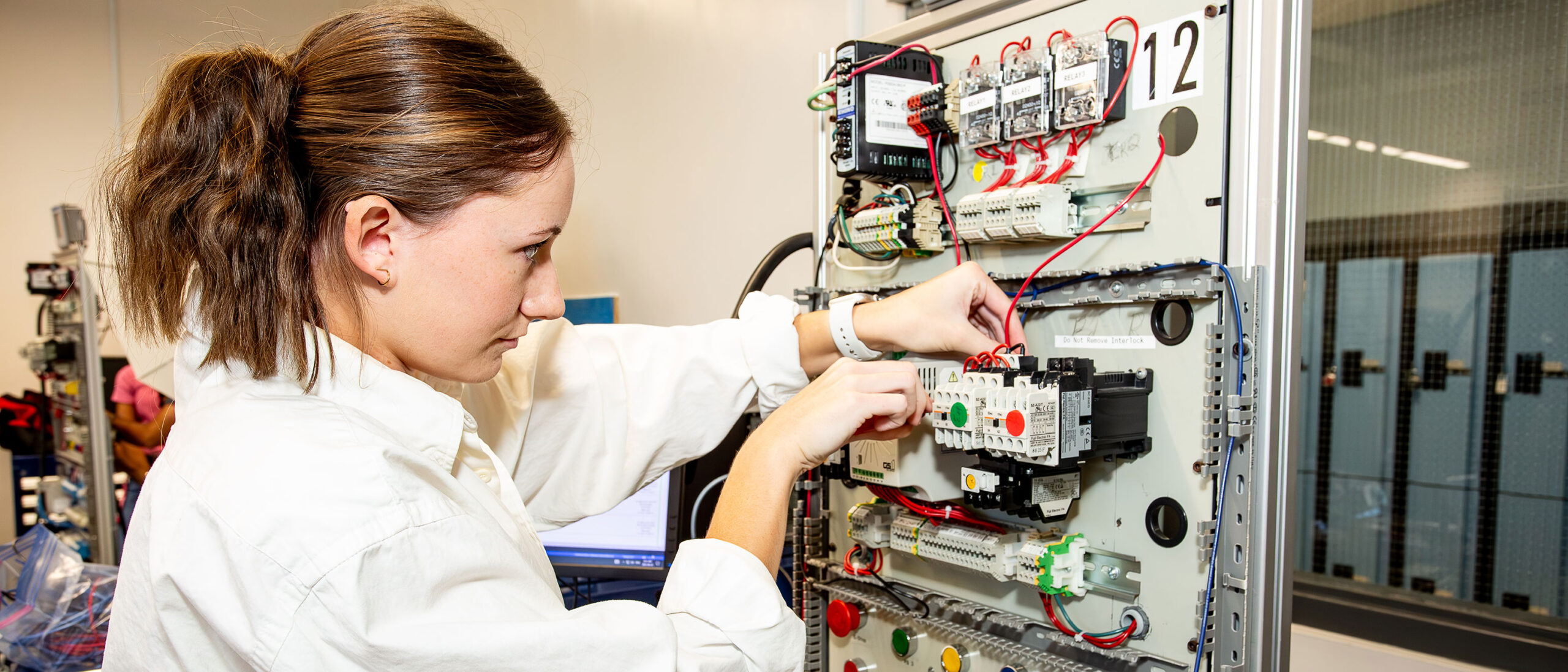*Please note: Classes for this program are delivered at both Loyalist’s Belleville and Tyendinaga location (5717 Old Highway 2, Shannonville, ON). Public transit is not available to our Tyendinaga location and students will be responsible for their own transportation.
Find your career
Prepare for an in-demand labour market as a:
- Gas technician.
- Air conditioning and refrigeration systems mechanic.
- Heating, ventilation and air conditioning (HVAC) mechanic.
- Hydronics technician.
- Central air conditioning installer.
- Heating, refrigeration and air conditioning systems installation, maintenance, and repair in residential and light commercial settings.
Graduates may also pursue a career in parts or equipment sales with a variety of employers such as:
- Residential and commercial heating companies.
- Air conditioning or refrigeration contractors.
- Wholesalers.
- Public utilities.
- Oil distribution companies.
- Different levels of government.
Is it for you?
Successful students in this program are people who:
- Enjoy engaging with and servicing the public.
- Are comfortable working with hand tools and power equipment.
- Enjoy routine problem solving.
- Are familiar with and comfortable applying basic mathematics and physics fundamentals.
- Enjoy completing hands-on tasks, assembly and performing installations.
- Adhere to workplace and public safety protocols.
- Are interested in ongoing personal and professional development, that will lead to enhanced. work performance and career opportunities and keep pace with industry changes.

